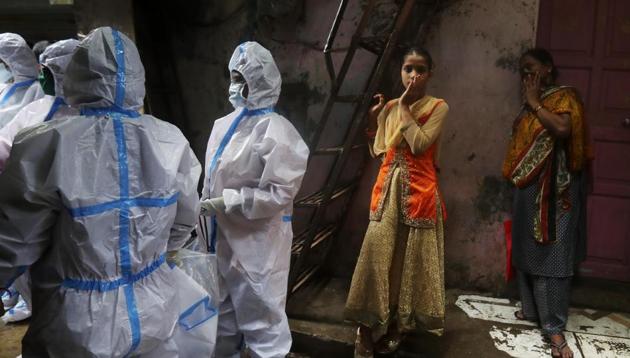Covid-19: What you need to know today
Genome editing can prevent and treat many diseases — once we figure out how to use it safely in humans, and address the ethical concerns surrounding technologies such as CRISPR-Cas9. Last year, CRISPR moved out of the labs, and into human trials.
Emmanuelle Charpentier at the Max Planck Institute for Infection Biology and Jennifer Doudna at the University of California, Berkeley have won the chemistry Nobel for their discovery of CRISPR, which has been described as a sort of editing software that can be used on DNA (which is anyway information, making the software analogy particularly apt).

CRISPR is short for clustered regularly interspaced short palindromic repeats. Charpentier and Doudna — this is the first time any science Nobel has been given to two women — found that a CRISPR-associated protein 9 (which is why their discovery is often referred to as CRISPR-Cas9) found naturally in bacteria could be used to cut DNA; in the case of the bacteria they studied, Cas9 was actually being used to attack an invading virus.
Genome editing can prevent and treat many diseases — once we figure out how to use it safely in humans, and address the ethical concerns surrounding technologies such as CRISPR-Cas9. Last year, CRISPR moved out of the labs, and into human trials. There are now several clinical trials on for a variety of ailments, from melanoma to sickle cell disease. And along the way, researchers discovered that the CRISPR toolkit can be used as a diagnostic platform to detect pretty much anything — inexpensively and simply (the simplicity is purely from the perspective of the end user; the technology is very complex).
CRISPR AND COVID
A CRISPR technology that can be almed at RNA could attack viruses in which the genetic materials in RNA (this is true of most flu-causing viruses and also Sars-CoV2, which causes the coronavirus disease) - although, right now, this is the realm of research.
Earlier this year, scientists even found Cas13, which cuts RNA instead of DNA — a safer and more effective option in some cases. Indeed, a CRISPR technology that can be aimed at RNA could attack viruses in which the genetic material is RNA (this is true of most flu-causing viruses and also Sars-CoV2, which causes the coronavirus disease) — although, right now, this is in the realm of research.
I wrote about CRISPR in a December 2019 essay on how the decade between 2010 and 2019 saw significant developments that would help create “machines that can think”, facilitate “the colonisation of space” and extend human lifespans to 100 years, maybe more.
Still, while the potential of CRISPR in combating a virus (such as the one that causes the coronavirus disease) is clear, years of research, clinical trials, and regulatory debates, lie in between. But there is a closer connection between CRISPR and Covid-19, and it is an Indian one.
THE INDIAN LINK
There is a closer connection between CRISPR and Covid-19, and it is an Indian one. The link is Feluda, a quick and inexpensive test to diagnose Covid-19 that has been developed at Delhi’s Institute of Genomics and Integrative Biology, and named after a fictional detective created by Satyajit Ray. The paper-based test is as quick as a rapid antigen test, and as accurate as the RT-PCR test. It will soon be launched in India, and that wouldn’t have been possible without CRISPR
The link is Feluda, a quick and inexpensive test to diagnose Covid-19 that has been developed at Delhi’s Institute of Genomics and Integrative Biology, and named after a fictional detective created by Satyajit Ray (the detective’s real name is Prodosh Chandra Mitra but everyone calls him by his nickname, Feluda).
Also Read | India’s first Covid-19 wave finally recedes
The paper-based test has been written about extensively — Hindustan Times first wrote about it in May — and it turns out that Feluda (as in the test) is also an acronym, for FnCas9 editor linked uniform detection assay. Debojyoti Chakraborty, one of the developers of Feluda (the other one is Souvik Maiti) described it best in a May interview with HT: “The CRISPR-based Feluda testing works by combining CRISPR biology and paper strip chemistry,” he explained. “The Cas9 protein, a component of the CRISPR system, is barcoded to interact specifically with CoV2 sequence in a patient’s genetic material. The complex of Cas9 with CoV2 is then applied to a paper strip, where, by using two lines (one control and other test), it is possible to determine if the original sample was infected with Covid-19.” This is pretty much like popular strip-pregnancy tests — and much like them, when the strip shows two lines it means a positive result.
It turns out that Feluda is as inexpensive and quick as a rapid antigen test, and as accurate as the expensive and time-consuming RT-PCR test.
Feluda, which will soon be launched in India by the Tata group, wouldn’t have been possible without CRISPR, which is why the chemistry Nobel announced on Wednesday is significant.






